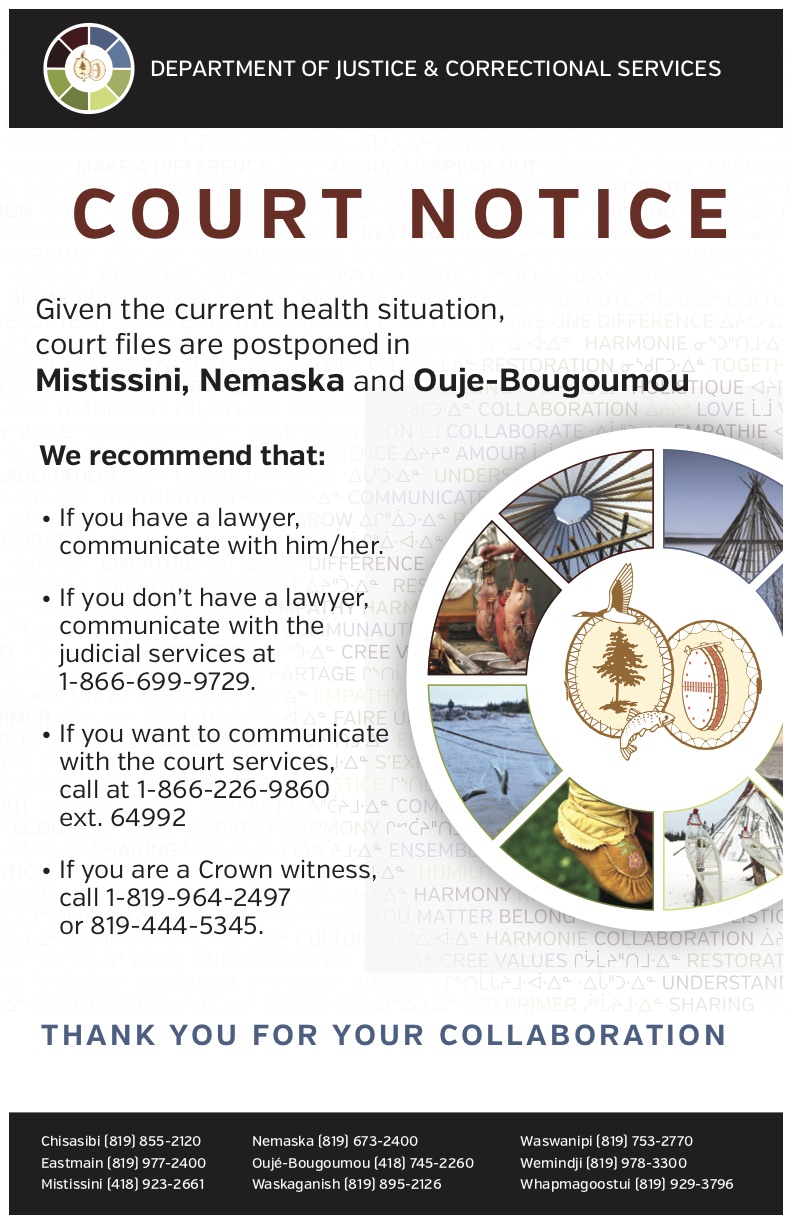
Key note speakers and experts
The Department of Justice and Correctional Services is proud to welcome the following speakers at its conference.*
Key Note Speakers
Senator Kim PateMember, Standing Committee on Aboriginal Peoples
|
Federal Court Judge Sébastien Grammond
After studies in engineering, he obtained an LL.B. and an LL.M. from the Université de Montréal, as well as a doctorate in law from the University of Oxford. He clerked for Chief Justice Antonio Lamer of the Supreme Court of Canada. He then practiced law with Byers Casgrain (now Dentons Canada) in Montreal and continued to practice in parallel to his academic career. He was a member of the Quebec and Ontario bars. He argued several major constitutional law and civil law cases before the Supreme Court of Canada and many other cases before trial and appellate courts. His pro bono advocacy led to a historic judgment of the Canadian Human Rights Tribunal, with respect to the discriminatory underfunding of child welfare services in First Nations communities, as well as legislative reforms regarding child welfare, customary adoption and the rights of victims of sexual assault. |
Dr. Abel BosumGrand Chief, Cree Nation Government
In the 1980’s and 1990’s, he was the leader of the Crees of Oujé-Bougoumou, who had been left out of the historic James Bay Northern Quebec Agreement and pushed aside by the forestry and mining operations in their traditional territory. His efforts resulted in his community going from marginalization to a vibrant community renowned for its innovative approach to community development and shaped by the melding of traditional Cree values and modern technology. The new Ouje-Bougoumou village has received both national and international notoriety. The community received an award for its community development achievements--“We the Peoples”: 50 Communities” in commemoration of the 50th anniversary of the United Nations, and in addition, the community received a Best Designation citation from Habitat II, a UN conference on urban dwelling. In 2000, the community was asked to participate in Expo2000 held in Hannover, Germany. Dr. Abel Bosum’s list of achievements include his time as the head negotiator of the Grand Council of the Crees and President of the Aanischaaukamikw Foundation and the Aanischaaukamikw Cree Cultural Institute. Elected Grand Chief in 2017, Dr. Bosum was awarded the Order of Canada earlier this year. As Grand Chief, his priorities are the promotion of Cree culture, and the preservation of the Cree language and traditions. He has also placed a major priority on capacity-building among the Cree youth. |
Dr. Wilton LittlechildGrand Chief and Truth and Reconciliation Commissioner
A recipient of both the Alberta Order of Excellence and the Order of Canada, Dr. Littlechild is also an avid sportsman and athlete with dozens of provincial, regional, national and international championships to his name, he was a founder of the North American Indigenous Games, and was selected as a torch bearer and ambassador for the 2010 Olympics. |
National and International Experts
Dr. Beverley JacobsUniversity of Windsor
Beverley's passion is about peacefulness and safety of Indigenous peoples. For the past 25 or so years, much of her work has focussed on anti-violence work, restoring Indigenous traditions, values, beliefs and laws and decolonizing Eurocentric law. She continues to advocate for families of missing and murdered Indigenous women and girls and to educate the public about the history and impacts of colonization, which has resulted in the traumas that are occurring to Indigenous peoples, specifically Indigenous women and girls today. Beverley is a Member of the Order of Canada, which was just announced on June 29, 2018. She received a Franco-German Prize for Human Rights and the Rule of Law from the Governments of France and Germany for her human rights fight for the issues relating to missing and murdered Indigenous women and girls in Canada. She is mother of Ashley and grandmother of Nicholas (17), Tessa (15), Bryson (10) and Kenna (8). She is partner to Patrick Sandy, Mohawk Nation, Turtle Clan. |
Dr. Debra PeplerYork University
Her research has been embedded in clinical settings at Breaking the Cycle, the Child Development Institute, and Pine River Institute. Dr. Pepler’s research focuses on children and youth in school and peer contexts, as well as on children in families at risk. Together with Shelley Cardinal of the Canadian Red Cross, she is working with Indigenous communities to learn how communities move from the cycle of violence to the circle of healing. Debra received the Donald O. Hebb Award for Distinguished Contributions to Psychology as a Science from the Canadian Psychological Association. Dr. Pepler's clinical work is in the areas of family break-up and children with emotional and behavioural problems. She has served on several advisory committees related to parenting, antisocial behaviour, and safe school policies, within Canada and internationally. |
Dr. Harry StefanakisPsychologist
As an internationally recognized educator and consultant, he has been a visiting expert for the United Nations: Asia and Far East Institute and has provided training and consultation for organization in Canada, the USA, Europe and Asia. He has participated in numerous initiatives on ending violence including the Be More Than A Bystander campaign. He has produced three audio CDs, is featured in a hypnosis training DVD and several videos on ending violence. He is the author of CORE Living: 8 Choices for living well, Your Psychological CORE, and Through Silence & Ash. |
Dr. Mark HarrisUniversity of British Columbia
He has worked as a lawyer giving advice on native title claims for the Wurundjeri, Gunai Kurnai, Manatunga and Gubbi Gubbi Indigenous communities in Australia and continues to provide advice to Indigenous groups on a range of issues. He has participated in the United Nations Permanent Forum on Indigenous Issues. His recent research projects have included reviews of the operation of Koori (Aboriginal) courts in Victoria (a program that is not dissimilar to Toronto’s First Nations Gladue Courts), and the experience of Koori youth in the justice system. He also works in the field of postcolonial legal theory, which informed his manuscript titled Human Rights, the Rule of Law and Exploitation in the Postcolony: Blood Minerals that will be published by Routledge later this year. He is also currently an editor of the Routledge series, Law and the Postcolonial: Ethics, Politics and Economy. |
Ghislain OtisUniversity of OttawaCanada Research Chair in Legal Diversity and Aboriginal Peoples
Professor Otis is currently at the Civil Law Section of the University of Ottawa where he holds the tier 1 Canada Research Chair on Legal Diversity of Indigenous Peoples. He leads and coordinates major international research initiatives with indigenous peoples and traditional communities on legal pluralism. He has directed and co-authored several books on indigenous peoples, human rights and legal pluralism. The most recent ones include Contributions to the Study of Indigenous Legal Systems (2018 in French) Aboriginal Governance and Federalism, (2013); Judges and the Dialogue of Legal Cultures (2013, In French); Methodology of Legal Pluralism (2013, French) and Customary Adoption : the Challenge of Legal Pluralism (2012, in French). Professor Otis is the director of a major international research partnership funded by the Social Sciences and Humanities Research Council of Canada and the AUF (Agence universitaire de la Francophonie). The project brings together academic and indigenous researchers as well as indigenous organisations from seven countries working on a comparative study of the management of legal pluralism in postcolonial states ((see www.legitimus.ca) |
Jennifer PrestonExpert UNDRIP
She received her Masters degree from the University of Guelph and was a lecturer in Canadian Studies at the University of Waterloo. Jennifer participated in the UN Working Groups that developed the United Nations Declaration on the Rights of Indigenous Peoples was involved in the intensive lobbying efforts to ensure the adoption of the Declaration in both Geneva and New York. Her work now focuses on implementation. She works closely with Indigenous Peoples' representatives and state representatives as well as human rights organizations in various regions of the world including at the UN Permanent Forum on Indigenous Issues and the UN Expert Mechanism on the Rights of Indigenous Peoples. She is a co-editor of and contributor to Realizing the UN Declaration on the Rights of Indigenous Peoples: Triumph, Hope and Action. For the past nine years she has written the annual review of Canada for The Indigenous World, published by the International Work Group on Indigenous Affairs. Jennifer represented CFSC at the Supreme Court of Canada in the landmark Tsilhqot’in Nation case. Jennifer represents CFSC in the Coalition for the Human Rights of Indigenous Peoples. |
Nicole CharronCanadian Institute for Conflict Resolution
Nicole was the first recipient of the Women Building Peace Award, presented by the Canadian Department of Peace Initiative in cooperation with the Civilian Peace Service. An accredited mediator of the ADR Institute, she is also part of the United Nations Program of Political Affairs' mediator directory. She has been an Organizational Development Consultant for more than a quarter-century, and also practices Alternative Dispute Resolution (ADR). Nicole has been a trainer with the Cree Nation, and is an Honoured Fellow of the Canadian Institute for Conflict Resolution. |
Paul JoffeAttorney & expert UNDRIP
Since the early 1980s, he has been actively involved in standard-setting processes including those relating to the United Nations Declaration on the Rights of Indigenous Peoples; the American Declaration on the Rights of Indigenous Peoples at the Organization of American States; and the Indigenous and Tribal Peoples Convention, 1989 in Geneva. For the past three decades, Paul has represented the Grand Council of the Crees (Eeyou Istchee) and, more recently, the Cree Nation Government. In 1997, he was part of its legal team at the Supreme Court of Canada in Reference re Secession of Québec. In the 2014 Tsilhqot’in Nation case, he was part of the legal team representing Amnesty International and Canadian Friends Service Committee (Quakers) at the Supreme Court of Canada, focusing on Indigenous peoples’ rights in international law. Paul is a co-editor and contributor to the book Realizing the UN Declaration on the Rights of Indigenous Peoples: Triumph, Hope, and Action (2010). Most recently, he is a contributor to the book Indivisible: Indigenous Human Rights (2014). |
* Subject to change
Information about the program and speakers will be updated regularly. Stay tuned!

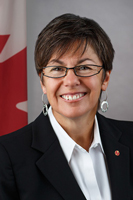 Kim Pate was appointed to the Senate of Canada on November 10, 2016. First and foremost, the mother of Michael and Madison, she is also a nationally renowned advocate who has spent the last 35 years working in and around the legal and penal systems of Canada, with and on behalf of some of the most marginalized, victimized, criminalized and institutionalized — particularly imprisoned youth, men and women.
Kim Pate was appointed to the Senate of Canada on November 10, 2016. First and foremost, the mother of Michael and Madison, she is also a nationally renowned advocate who has spent the last 35 years working in and around the legal and penal systems of Canada, with and on behalf of some of the most marginalized, victimized, criminalized and institutionalized — particularly imprisoned youth, men and women. Sébastien Grammond was appointed to the Federal Court on November 9, 2017. Prior to his appointment, he had been professor and dean of the Civil Law Section of the University of Ottawa. His research dealt with the legal recognition of Indigenous identity, Indigenous legal systems and contractual justice. He is the author or co-author of six books and numerous articles about Aboriginal law, constitutional law and contracts, including Identity Captured by Law: Membership in Canada's Indigenous Peoples and Linguistic Minorities (2009), Terms of Coexistence: Indigenous Peoples and Canadian Law) (2013 and Quebec Contract Law (2nd ed., 2016).
Sébastien Grammond was appointed to the Federal Court on November 9, 2017. Prior to his appointment, he had been professor and dean of the Civil Law Section of the University of Ottawa. His research dealt with the legal recognition of Indigenous identity, Indigenous legal systems and contractual justice. He is the author or co-author of six books and numerous articles about Aboriginal law, constitutional law and contracts, including Identity Captured by Law: Membership in Canada's Indigenous Peoples and Linguistic Minorities (2009), Terms of Coexistence: Indigenous Peoples and Canadian Law) (2013 and Quebec Contract Law (2nd ed., 2016).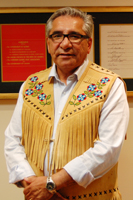 Dr. Abel Bosum is a Cree leader and negotiator who is currently serving as Grand Chief of the Grand Council of the Crees in northern Quebec (Eeyou Istchee).
Dr. Abel Bosum is a Cree leader and negotiator who is currently serving as Grand Chief of the Grand Council of the Crees in northern Quebec (Eeyou Istchee).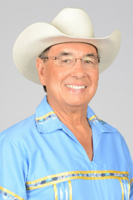 Dr. Wilton Littlechild is known as a pioneer for the global Indigenous rights movement and a dedicated advocate of the implementation of treaties between Indigenous Peoples and the Crown. He is a founding member of the Indigenous Initiative for Peace, and served on the Truth and Reconciliation Commission of Canada. He was appointed Honorary Chief in his home community of the Maskwacis Crees, the highest honour an Indigenous person can receive in his culture.
Dr. Wilton Littlechild is known as a pioneer for the global Indigenous rights movement and a dedicated advocate of the implementation of treaties between Indigenous Peoples and the Crown. He is a founding member of the Indigenous Initiative for Peace, and served on the Truth and Reconciliation Commission of Canada. He was appointed Honorary Chief in his home community of the Maskwacis Crees, the highest honour an Indigenous person can receive in his culture.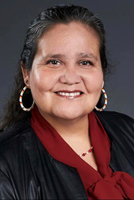 Dr. Beverley Jacobs is an Assistant Professor at the Faculty of Law, University of Windsor and she practices law part-time at her home community of Six Nations of the Grand River Territory. She recently completed an interdisciplinary PhD at the University of Calgary that includes Law (Aboriginal and Treaty Rights and Indigenous Legal Traditions), Indigenous Wholistic Health and Indigenous Research Methodologies. Beverley has obtained a Bachelor of Law Degree from the University of Windsor in 1994 and a Masters of Law Degree from the University of Saskatchewan in 2000. Beverley is also a consultant/researcher/writer/public speaker and she is a former President of the Native Women’s Association of Canada (elected 2004 to 2009).
Dr. Beverley Jacobs is an Assistant Professor at the Faculty of Law, University of Windsor and she practices law part-time at her home community of Six Nations of the Grand River Territory. She recently completed an interdisciplinary PhD at the University of Calgary that includes Law (Aboriginal and Treaty Rights and Indigenous Legal Traditions), Indigenous Wholistic Health and Indigenous Research Methodologies. Beverley has obtained a Bachelor of Law Degree from the University of Windsor in 1994 and a Masters of Law Degree from the University of Saskatchewan in 2000. Beverley is also a consultant/researcher/writer/public speaker and she is a former President of the Native Women’s Association of Canada (elected 2004 to 2009).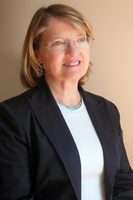 Dr. Debra Pepler is a distinguished research professor of psychology at York University and co-founder of the Promoting Relationships and Eliminating Violence Network (PREVNet: www.prevnet.ca). Her work is widely credited with changing the way we think about bullying, aggression and other forms of violence, especially among marginalized and alienated young people.
Dr. Debra Pepler is a distinguished research professor of psychology at York University and co-founder of the Promoting Relationships and Eliminating Violence Network (PREVNet: www.prevnet.ca). Her work is widely credited with changing the way we think about bullying, aggression and other forms of violence, especially among marginalized and alienated young people.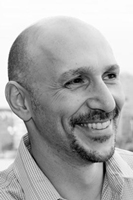 Dr. Harry Stefanakis is a clinical and consulting psychologist in private practice in Vancouver, BC. He has over 20 years of experience facilitating individual and social change with an emphasis on intelligent compassion processes.
Dr. Harry Stefanakis is a clinical and consulting psychologist in private practice in Vancouver, BC. He has over 20 years of experience facilitating individual and social change with an emphasis on intelligent compassion processes. Dr Mark Harris is an Associate Professor in the Institute of Gender, Race, Sexuality and Social Justice at the University of British Columbia. His research focuses on Indigenous rights in relation to cultural heritage, land claims, the stolen generations, intellectual property and criminal justice issues.
Dr Mark Harris is an Associate Professor in the Institute of Gender, Race, Sexuality and Social Justice at the University of British Columbia. His research focuses on Indigenous rights in relation to cultural heritage, land claims, the stolen generations, intellectual property and criminal justice issues.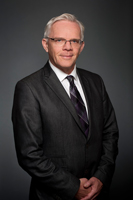
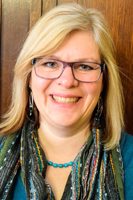 Jennifer Preston is the Indigenous Rights coordinator for Canadian Friends Service Committee (CFSC), the justice arm of Quakers.
Jennifer Preston is the Indigenous Rights coordinator for Canadian Friends Service Committee (CFSC), the justice arm of Quakers.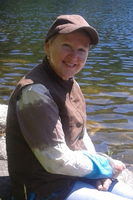 Nicole Charron has been a consultant on Organizational Development for more than 25 years. She practices various informal conflict resolution/transformation processes, including mediation, conflict coaching and hard-to-serve group interventions, all while offering workshops in and outside of Canada in conflict management skills to contribute to peace building.
Nicole Charron has been a consultant on Organizational Development for more than 25 years. She practices various informal conflict resolution/transformation processes, including mediation, conflict coaching and hard-to-serve group interventions, all while offering workshops in and outside of Canada in conflict management skills to contribute to peace building.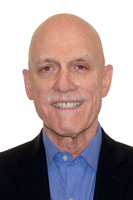 Paul Joffe is a member of the Québec and Ontario bars. He specializes in human rights concerning Indigenous peoples at the international and domestic level.
Paul Joffe is a member of the Québec and Ontario bars. He specializes in human rights concerning Indigenous peoples at the international and domestic level.